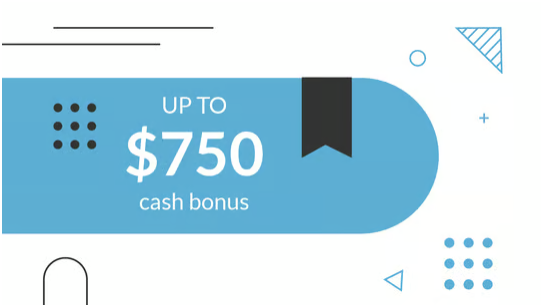In the dynamic world of business finance, finding the right bank account can be a game-changer. This article delves into the realm of business bank account bonus offers, providing a detailed analysis of the incentives available and how they can benefit your business.
Introduction to Business Bank Accounts
A business bank account is more than just a repository for your company’s funds. It is a strategic tool that can help you manage cash flow, build credit, and even attract investors. With the right account, you can streamline your operations and focus on growing your business.
The Importance of Bonus Offers
Bonus offers from banks are not just marketing gimmicks; they can provide substantial benefits to your business. These offers often include cash bonuses, waived fees, and other incentives that can help you save money and enhance your financial strategy.
Types of Bonus Offers
Cash Bonuses
Many banks offer cash bonuses for opening a new business account. These bonuses can range from a few hundred dollars to several thousand, depending on the bank and the type of account. For example, some banks may offer $500 for opening a premium business checking account.
Waived Fees
Another common bonus is the waiver of certain fees for a specified period. This can include monthly maintenance fees, transaction fees, and even ATM fees. Waived fees can significantly reduce your banking costs, especially in the initial stages of your business.
Interest Rates
Some banks offer higher interest rates on business savings accounts as a bonus. While these rates may not be as high as those offered to individual savers, they can still provide a modest return on your deposits.
How to Choose the Right Bonus Offer
Assess Your Business Needs
Before jumping at a bonus offer, it’s crucial to understand your business’s specific needs. Consider factors such as transaction volume, cash flow, and future growth plans. A bonus that seems attractive may not be suitable if it doesn’t align with your business operations.
Compare Multiple Offers
Take the time to compare offers from different banks. Look at the terms and conditions, the duration of the bonus, and any potential drawbacks. A higher bonus amount may come with stricter requirements or higher fees.
Read the Fine Print
Always read the fine print. Some bonuses may require a minimum deposit, a certain number of transactions, or a specific type of business structure. Understanding these requirements can help you avoid disappointment and ensure you maximize the benefits.
Case Studies
Example 1: Small Retail Business
A small retail business owner opened a business checking account with a bank that offered a $300 cash bonus and waived fees for the first year. This allowed the owner to save on monthly expenses and reinvest those savings into inventory and marketing.
Example 2: Tech Startup
A tech startup opted for a business savings account with a higher interest rate. The initial deposit was significant, but the interest earned helped the company build a cushion for future investments and unexpected expenses.
Business bank account bonus offers can provide significant benefits to your business. By carefully assessing your needs, comparing multiple offers, and understanding the fine print, you can choose a bonus that aligns with your business goals. Whether you’re a small retail business or a tech startup, the right bonus offer can help you save money and enhance your financial strategy.
In the competitive world of business finance, taking advantage of these offers can give you a competitive edge. So, explore your options and find the bonus offer that best suits your business needs.
